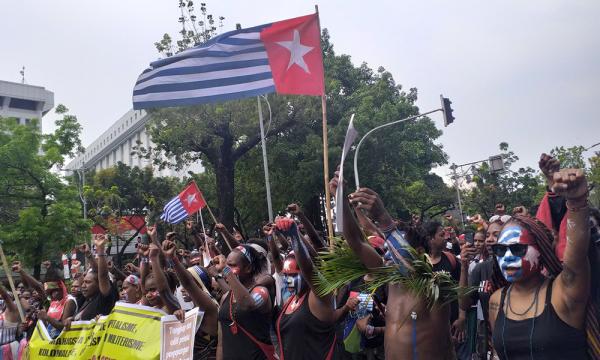LETTER | Democracy, especially freedom of expression, is a bedrock of the Indonesian political system. Critics of the government and street protests are part and parcel of this democratic process. All Indonesian regions enjoy these rights, including in West Papua and Papua Provinces, Indonesia.
However, when certain protesters are escalating their initial peaceful protests and turning them into violence by burning public facilities, vandalizing properties, and threatening other people, the Indonesian Government cannot stand by passively, but takes immediate actions to restore public safety, law and order in the said two provinces.
With regard to an article in Malaysiakini, “West Papua groups: Indonesian military is burning our villages” by Martin Vengadesan, please allow the Indonesian Embassy take its right of reply to this inaccurate, slanderous and baseless writing.
Firstly, the Embassy rejects the reference to “racist treatment of Papuans by Jakarta”. Under the leadership of President Jokowi, West Papua and Papua Provinces’ welfare is on top of our national priorities.
The economic sector, particularly infrastructure, has been developed massively and rapidly. More than 4,300 km roads, 15 seaports, and 6 airports have been built in the last four years. The electrification ratio of 30 percent in 2013 has been increased to more than 72 percent. In 2018, Papua’s economy grew by 7.3 percent, while West Papua grew by 6.24 percent.
In addition, they elect their own governors, bupati (head of regency) and other leaders. An accusation of racist treatment by Jakarta is therefore slanderous.
Secondly, the accusation of a imposition of religion in the provinces by the Jakarta government is clearly baseless. It has never been the case of any religious imposition by the government.
Despite only quoting an unidentified “Papuan activist”, any journalist should be more considerate in selecting fact or lies, through check and recheck, particularly on sensitive issues, including religion.
Thirdly, the wording of “an internet blackout on the region” is inaccurate. There was, temporarily, a decision to limit the internet connection in some areas. At the same time, no limitation was imposed on telephone calls and text messages.
This decision was done in accordance with national laws and meant to prevent the spread of provocative content that incites disunity among Indonesians. Internet connection is now in place in many parts of the provinces.
Fourthly, the wording of “expelling foreign journalists” is again inaccurate. The fact is some foreign nationals have been deported due to their misusing the visa by being actively involved in political protest in other country.
Fifthly, the reference - “Papua and West Papua… were incorporated into Indonesia after a widely criticized 1969 referendum" - is erroneous and misleading. The two provinces have been an integral part of Indonesia since our national independence on 17 August 1945.
The United Nations’ adoption of the result of the 1969 Act of Free Choice only reaffirmed the legal fact that Papua has always been part of the Republic of Indonesia.
Motives for a referendum is obviously a campaign by a group of people for separation of territory or secession from the unitary state of the Republic of Indonesia. The secession movement has no basis under international law and is punishable by national law.
AGUNG CAHAYA SUMIRAT is Counsellor for Information, Social and Cultural Affairs, Embassy of the Republic of Indonesia. Malaysia.
The views expressed here are those of the author/contributor and do not necessarily represent the views of Malaysiakini.

